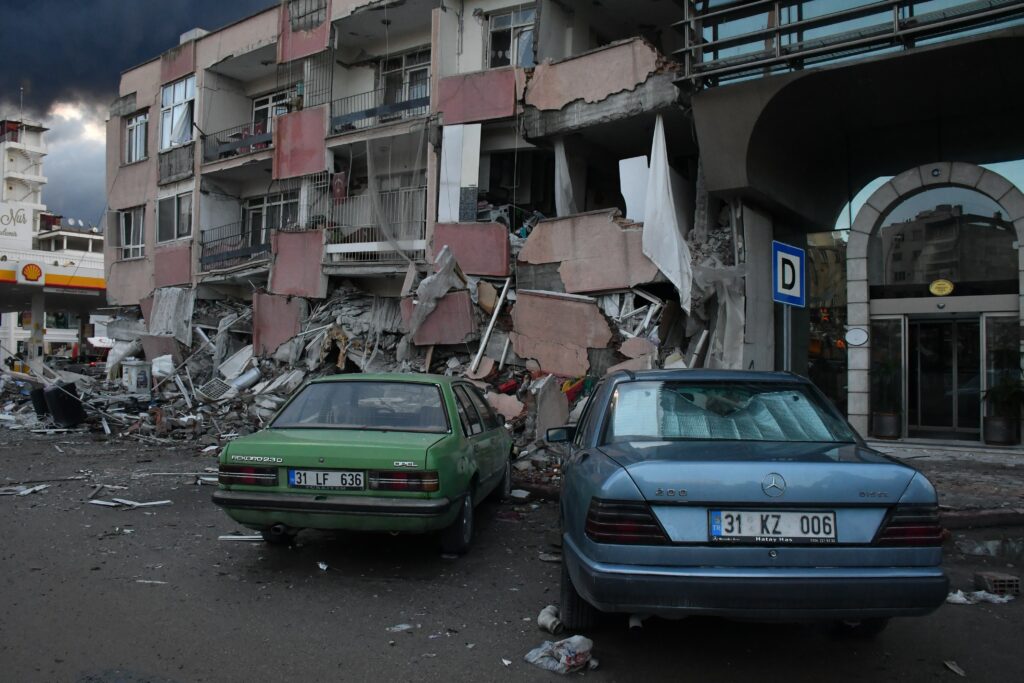As Turkey experienced another earthquake last week, the impact of the major earthquake that hit Turkey and Syria on 6th February is still a horrific reality for millions of people. As news and media interest move to other issues, it can feel like public interest has moved on too. Injury, displacement and loss of life is a reality for many people impacted by the earthquakes, and these issues do not go away when we- the less affected- stop talking about it.
So, how can we keep conversations and action going, even when they appear to have stopped?
How can we ensure important issues remain on our agenda all year round?
Though estimations vary and continue to rise, the UN estimated that 1.5 million people in the South of Turkey have been made homeless by the earthquakes. They are estimated to have killed over 44,000 people and injured over 100,000.
Action has been taken in the form of aid, from the overwhelming donations made to the Disaster Emergency Committee (DEC) by the public, to the provisions given by governments and organisations across the world.
The DEC Campaign was launched 3 days after the first earthquakes and has raised over £100 million so far. The UK government has contributed £5 million through the UK Aid Match Scheme to the efforts, as have personal donations by King Charles, Daniel Craig, Tamsin Greig and others.
Organisations have also played a key role in aid provision, such as the IKEA Foundation sending 5,000 flatpack shelters to affected areas, alongside Meta, Amazon, Mercedes Benz and others.
However, such important action needs to continue. Hans Kluge, the World Health Organisation’s European director, claimed aid workers were experiencing “the worst natural disaster in the region for a century” as 26 million people are predicted to still need assistance.
Public attention is always drawn to a ‘shock’ event.
How can we ensure public attention and action prevails beyond these immediate days?
Racism in the Workplace
Like the Syria-Turkey earthquake, the issue of race inequality entered the forefront of our minds following the death of George Floyd and the Summer of 2020. More recently, organisations have placed emphasis on tackling race inequality during Race Equality Week earlier this month.
Almost 3 years on from the Summer of 2020, evidence is conflicting on what action has been taken with differing impact.
A report conducted by Ipsos in Summer 2020 found that 41% of British workers, and 57% of ethnically diverse workers within this, say the murder of George Floyd impacted how their company addressed race-related matters.
However, though some change has occurred, just 43% of workers feel such a commitment has lasted.
In a poll conducted at the last Race Equality Week event, 45% of attendees voted that they are unsure if their leaders are committed to tackling race inequality; demonstrating more is still to be done in making race equality everyone’s business.
Is there a lack of sustained commitment to tackling inclusion and inequality in general or is it when the issue is race?
Why are organisation’s commitment to change not lasting when the problem of race inequality continues to prevail?
Just last week a report was released on Monday 20th February- titled I Can’t’ Breathe: Race, Death and British Policing- that demonstrated race inequality is persisting beyond the workplace too. The report identified that Black people are seven times more likely to die than white people under police use of restraint.
It is clear the issue of race inequality has not been resolved in or outside the workplace.
It is also clear that the impact of the Syrian-Turkey earthquake is still being felt by millions.
With Race Equality Week over for another year, the momentum for change needs to continue. Just because the noise has died down, doesn’t mean the issue has.
Let’s keep conversations going and action happening.
How can you keep the conversation going in your organisation?
Race Equality Week is excited to embark on its 3rd round of the Trailblazer Series. This is when companies pioneering excellent work in tackling race inequality are celebrated and showcased as an example for other organisations to follow. Trailblazers ensure the conversation on race inequality is always happening.
To learn more on how to apply for Race Equality Matters’ Trailblazer status, visit our website for more details.
We know there is some good work being done, we want to recognise and share this to inspire and engage more to take action.
Image by Çağlar Oskay

